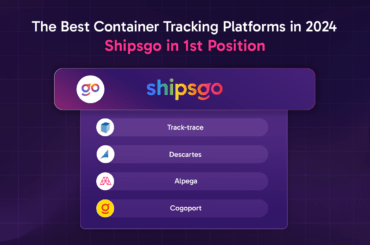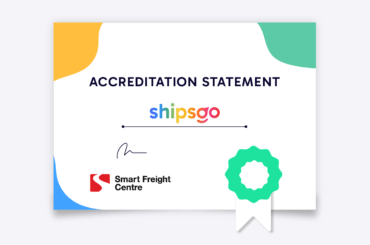Environmental sensitivity at a glance
As the ShipsGo team, we pursued comprehensive research about the importance of environmental sensitivity for beneficial cargo owners (BCOs) and freight forwarders in container transportation. The study was developed by collaborating with the Scientific and Technological Research Council of Turkey with the participation of university professors and students. Eighty-one countries participated in this study. 70% of all participants are from 20 countries. USA and Turkey are the leading countries in participation.
Primarily, we aimed to clarify the container transportation buying behavior of the users in the decarbonization process. We detect insights for all participants of the container shipping industry. We wanted to share the process and the results to create awareness with this blog based on the research.
In this blog, we covered the subject of environmental sensitivity in container transportation and what it means for BCOs and freight forwarders?
What is Environmental Sensitivity?
Environmental sensitivity is a condition that perceives and processes environmental exposures. Basically, our ability to understand and then process all environmental components.
Does the Container Carrier is Being Environmentally Sensitive Matter?
According to the BCO’s (32.7% of the participants) and the freight forwarders (67.3% of the participants) from 81 countries, container carriers’ environmental sensitivity is a variable in selecting stage of most of the participants. 71.8% of all respondents, 72.9% of the forwarders, and 71.2% of BCOs agree that “Environmental Sensitivity of the Container Carrier” is the carrier selection variable. Besides, 14.3% of all respondents have no idea, whereas 13.9% do not agree.
Does the Carrier’s Environmental Sensitivity Worth Paying Extra Freights and Accepting Longer Transit Times?
Even If the carrier is environmentally sensitive, only 56,8 % of the users agree to pay more freight costs. 62,9 % of the users accept longer transit times.
Comparing the freight forwarders and BCO’s, freight forwarders are more aware of both actions. This attitude might relate to being in the same industry (logistics and transportation) and facing the logistics environmental facts more intensely than the BCOs.
What are the Other Important Factors in Container Carrier Selection?
According to the results, for both freight forwarders and BCOs, schedule reliability is the most crucial factor for carrier selection. The second critical factor is transit time, whereas transshipment is the third. The less essential factors are service frequency and freight cost for the participants. However, surprising results appeared when we combined these factors:
- A higher freight cost is acceptable if there is a shorter transit time.
- A higher freight cost is acceptable if there is schedule reliability.
- A longer transit time is acceptable if there is a higher service frequency.
While we are ending this blog, we conclude that users tend to use an integrated approach in the container carrier selection process. Container carriers should be environmentally friendly. They need to be reliable for their schedule, and have shorter transit times. Together, these three characteristics can be called a “perfect set” in the container carrier selection process.




